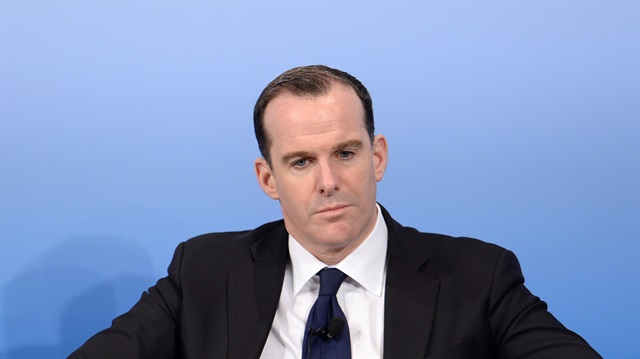
Brett McGurk, a top U.S. official in the anti-Daesh coalition, has voiced support for Turkey and Russia's leading role in enforcing the ceasefire in Syria.
Speaking at a panel discussion in the ongoing Munich Security Conference on Sunday, McGurk acknowledged shortcomings of the previous U.S. administration in the last couple of years in de-escalating the violence and brokering a truce in the region.
"One of the reasons that process did not succeed as we had hoped is frankly because we were guarantor and Russia was a guarantor. It turns out when the U.S. is a guarantor, we don't have people on the ground, we became a bit of a ping pong ball to try the control the situation,” he said.
The U.S. special presidential envoy to the anti-Daesh coalition underlined Washington's full support for Turkey's efforts, and its discussions with Russia.
"Turkey and Russia are suitable guarantors and we are looking for a role that the U.S. can come in to help to reinforce that process through Astana,” he said.
Turkey and Russia brokered last December a general ceasefire in Syria, followed by talks in Kazakhstan's capital Astana among conflict parties to enforce the cease-fire.
In Astana talks, Turkey, Russia and Iran agreed to a trilateral mechanism for observing and ensuring compliance with the ceasefire that went into effect on Dec. 30.
McGurk said the Astana process is not an alternative to UN-led peace talks in Geneva for a political solution to the conflict in Syria.
“The Astana process is about the mechanics of the ceasefire and making sure we continue to de-escalate the violence. The Geneva process through UN Security Council resolution 2254 is the locus of the political process and leading ultimately to the political transition. I think we have to keep those parallel tracks, while that are mutually reinforcing,” he said.
Syria has been locked in a vicious civil war since early 2011, when the regime of Bashar al-Assad cracked down on pro-democracy protests -- which erupted as part of the Arab Spring uprisings -- with unexpected ferocity.
Since then, more than a quarter of a million people have been killed and more than 10 million displaced across the war-torn country, according to the UN, but the Syrian Center for Policy Research puts the death toll at more than 470,000.














